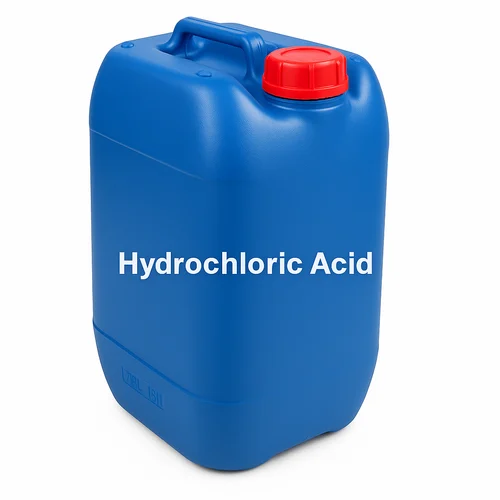Hydrochloric acid is one of the most widely used industrial chemicals, playing a key role in numerous manufacturing, cleaning, and processing applications.
Whether you’re in pharmaceuticals, food processing, metal treatment, or chemical manufacturing, understanding hydrochloric acid cost and its market dynamics can make a big difference in budgeting and production efficiency.
In this guide, we’ll explore the factors that influence the hydrochloric acid, compare it with other essential chemicals like hydrochloric acid and sulphuric acid, and discuss how businesses can optimize their purchase decisions effectively.
What is Hydrochloric Acid and Why is it Important?
Hydrochloric acid (HCl) is a strong, colorless acid known for its high reactivity and wide industrial applications. It is primarily produced by dissolving hydrogen chloride gas in water. This acid is extensively used in:
- Cleaning and pickling of metals
- Regulating pH levels in chemical processing
- Production of organic and inorganic compounds
- Water treatment processes
- Food industry for processing and purification
Given these applications, it’s no surprise that hydrochloric acid plays a significant role in many industries’ overall production expenses.
Factors Affecting Hydrochloric Acid Cost:
The hydrochloric acid cost is influenced by several key factors. Understanding these helps industries plan their purchases and reduce expenses effectively.
- Purity and Concentration
The higher the purity and concentration, the more expensive the acid. For industrial cleaning, lower grades may suffice, while in pharmaceuticals or food industries, premium-grade hydrochloric acid is required, raising the cost.
- Raw Material Prices
The production of hydrochloric acid involves hydrogen and chlorine. Any fluctuation in these raw materials’ prices directly affects hydrochloric acid.
- Transportation and Storage Costs
Since hydrochloric acid is a corrosive material, its handling requires special containers and safety measures. These logistics add to the overall price.
- Demand and Supply Dynamics
Global market demand — especially from the chemical and construction sectors — can drive the hydrochloric acid cost up or down depending on availability and usage trends.
- Location and Supplier Network
Prices vary by region and supplier. A strong local supply network can reduce transport costs and ensure stable pricing.
Comparing Hydrochloric Acid and Sulphuric Acid:
Both hydrochloric acid and sulphuric acid are powerful industrial acids, but their properties and applications differ significantly. Understanding these distinctions can help businesses make informed choices.
Aspect | Hydrochloric Acid | Sulphuric Acid |
Chemical Formula | HCl | H₂SO₄ |
Appearance | Colorless liquid | Oily, colorless to slightly yellow liquid |
Corrosiveness | Highly corrosive | Extremely corrosive |
Main Uses | Metal cleaning, pH regulation, food processing | Fertilizer production, battery acid, chemical synthesis |
Handling | Requires plastic or rubber-lined containers | Needs specialized acid-resistant storage |
Environmental Impact | Lower emission of fumes | Can emit harmful SO₂ gases |
While both acids are essential in industries, hydrochloric acid and sulphuric acid often serve complementary purposes. For example, sulphuric acid is vital for fertilizer manufacturing, whereas hydrochloric acid is preferred in food-grade applications and metal processing.
Industrial Applications of Hydrochloric Acid:
Let’s look deeper into the diverse industrial roles of hydrochloric acid and how its cost directly affects these operations:
- Metal Processing: Used in pickling steel and cleaning metal surfaces.
- Food Industry: Helps in starch modification, gelatin production, and pH control.
- Water Treatment: Maintains proper alkalinity and removes impurities.
- Chemical Synthesis: Essential in producing vinyl chloride (used in PVC) and other compounds.
- Oil and Gas: Plays a role in refining and removing rust from pipelines.
Given these uses, maintaining a consistent hydrochloric acid is crucial for sustainable industrial operations.
How to Get the Best Hydrochloric Acid:
If you’re a business owner or procurement manager, getting the best hydrochloric acid isn’t just about price — it’s about quality, reliability, and long-term partnership. Here are some tips:
- Buy in Bulk: Purchasing larger quantities often reduces per-unit pricing.
- Partner with Trusted Suppliers: Reliable suppliers ensure quality consistency and timely delivery.
- Evaluate Grade Requirements: Don’t pay for ultra-high purity if your process doesn’t require it.
- Check Local Availability: Local suppliers help cut down on transport costs.
- Monitor Market Trends: Stay updated with chemical market price reports for smarter purchasing decisions.
Environmental and Safety Considerations:
Both hydrochloric and sulphuric acid must be handled carefully due to their corrosive nature. Safety measures include using acid-resistant containers, proper ventilation, and personal protective equipment.
Moreover, companies should adhere to environmental guidelines to minimize the release of harmful gases or residues during production and use.
FAQ:
Q1: What is the average hydrochloric acid cost in the market?
The cost varies depending on purity, grade, and supplier, but generally ranges between ₹8 to ₹25 per kg in India for bulk industrial purchases.
Q2: Why do hydrochloric acid prices fluctuate?
The main reasons are changes in raw material prices, demand from industries, and transportation costs.
Q3: Can hydrochloric acid replace sulphuric acid in all applications?
No. Although both are strong acids, they serve different chemical functions. Hydrochloric acid and sulphuric acid are not interchangeable in most industrial processes.
Q4: What are the key safety measures while handling hydrochloric acid?
Always use protective gloves, eyewear, and acid-resistant containers. Avoid inhalation and direct contact.
Q5: How can I ensure the best price for hydrochloric acid?
Partner with reputable suppliers, monitor market trends, and negotiate for long-term bulk contracts.
Conclusion:
Understanding hydrochloric acid cost and its influencing factors helps industries manage production budgets effectively and maintain quality standards. While hydrochloric acid and sulphuric acid both hold critical industrial value, their unique properties make them suitable for distinct applications.
For businesses aiming for quality and reliability in acid procurement, working with trusted suppliers like Maruti Fine Chemicals ensures consistent supply, purity, and competitive pricing — the perfect combination for industrial success.

